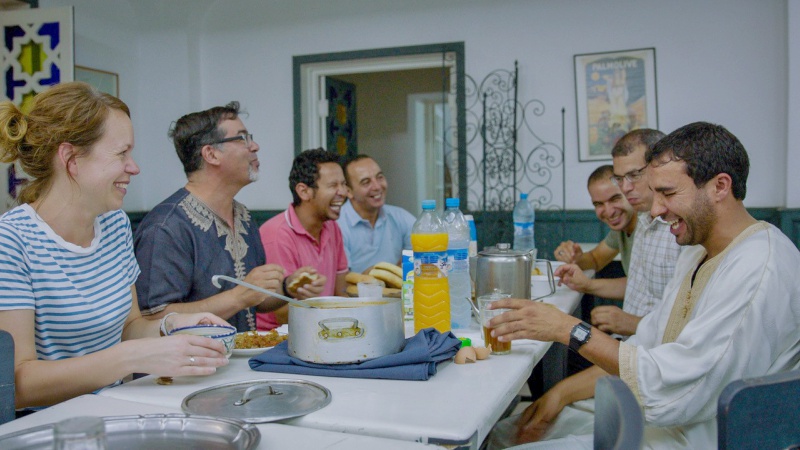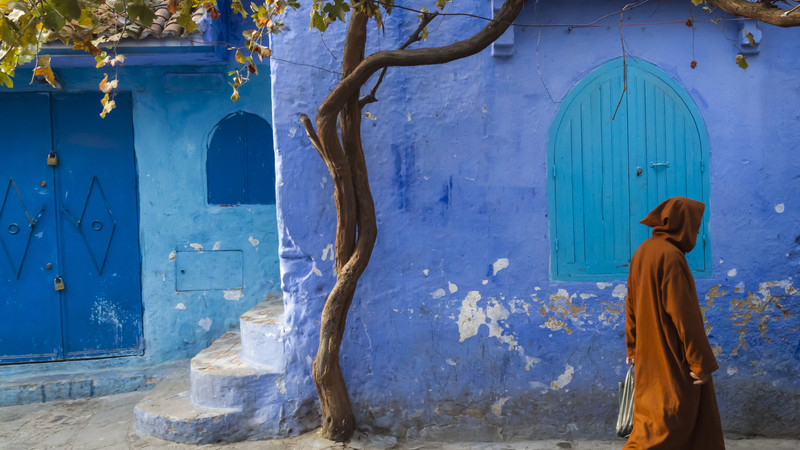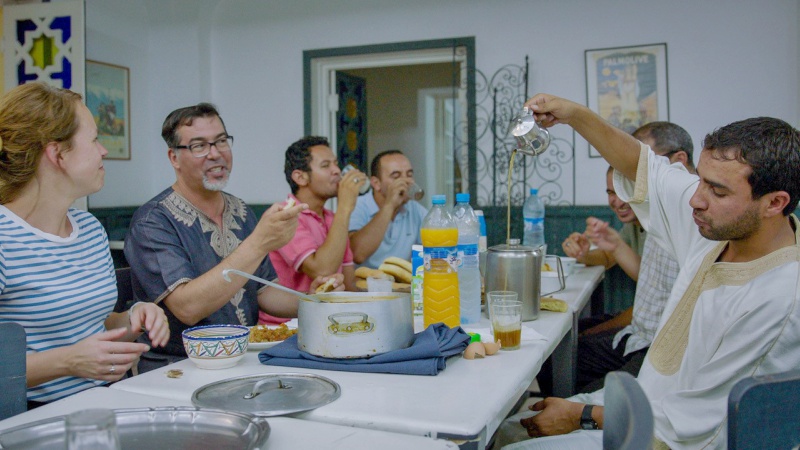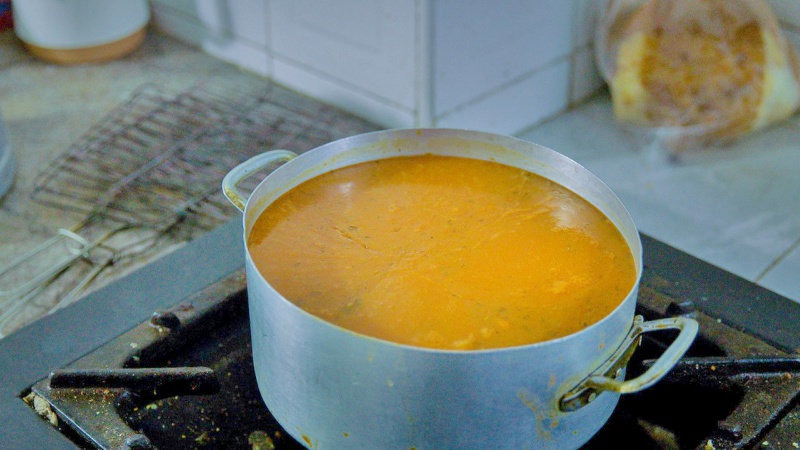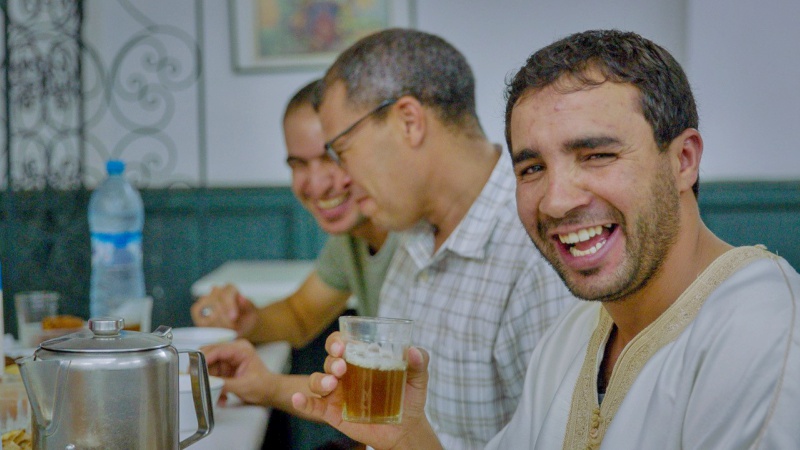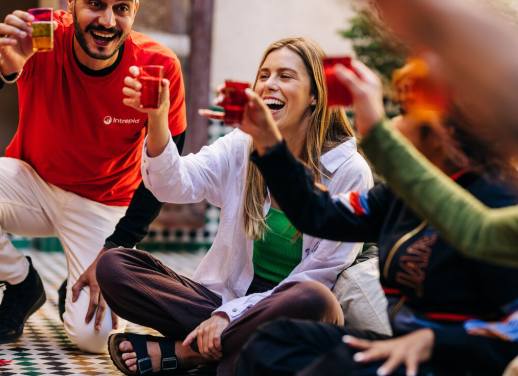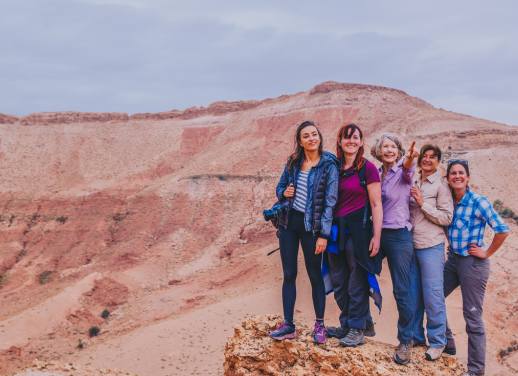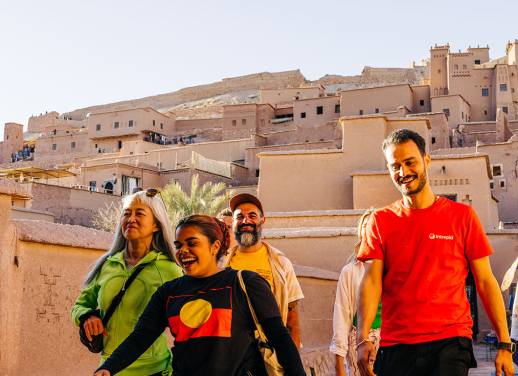One of the first things I do when I arrive in Morocco is ask my tour leader if I can buy him an ice cream. He gives me a bemused look and shakes his head. My initial thought is “What’s wrong with him? Maybe he’s lactose intolerant? Maybe he’s got really sensitive teeth? It’s so hot!” until it dawns on me: I’ve just made the ultimate faux pas. I’ve offered my fasting Muslim tour leader an ICE CREAM during Ramadan, the holiest month of the Islamic calendar. Idiot.
I knew a little about Ramadan before travelling through Morocco with a small group of equally foot-in-mouth travellers (one offered Hamid, our very tolerant and forgiving leader, a handful of chips as a bag was passed around our van; another asked where we could go for a few beers one evening – Morocco being a dry country where drinking alcohol is forbidden among Muslims). I knew that Ramadan lasted for around a month and involved fasting – no food, no water – from before dawn until sunset. I knew that smoking, gossiping, kissing and swearing were big no-nos, and that it was a time to practice restraint, patience, and spiritual reflection. But that was about it.
On the drive to Chefchaouen from the ferry terminal in Tangier, I rattle off approximately 80,000 questions to Hamid and our driver, Mousa. “What time do you eat? WHAT do you eat? Don’t you get tired? Hungry? Thirsty? It’s over 40 degrees! But seriously, DON’T YOU GET HUNGRY????” (This becomes my second faux pas. Admitting you’re hungry during Ramadan is a sign of weakness.).
Hamid, ever so patiently, explains.
The fast is broken just after the Maghrib call to prayer (the fourth of five daily prayers), which happens at sunset. When the call to prayer rings out across the city from the mosque, it’s always read by an imam; the prayer is never recorded. And because of the varying sunset times across Morocco (and other Muslim countries around the world), the five calls to prayer throughout the day and night – Fajr at dawn, Dhuhr at midday, Asr in the afternoon (which starts when the shadow of an object becomes the same size as the object itself), Maghrib, and Isha’a at midnight – become continuous.
Traditionally, the first thing you eat after fasting all day is a date; it’s said that Mohammad broke his fast with dates. Along with being delicious, they’re also a pretty powerful energy boost which, let’s face it, everyone needs after a day of NO FOOD. During the iftar (aka the meal at the breaking of the fast aka breakfast), harira soup, eggs, bread, mint tea and water is served.
Yes, no food, nothing to drink and stifling heat does make people pretty tired – and cranky too – which is why you see so many people sitting around in the shade during Ramadan. Most restaurants will stop serving meals to customers between 7.30 and 8.30 in the evening so they can share the iftar with their staff (and some shops and restaurants close completely for the duration of Ramadan), but otherwise it’s pretty much business as usual if you’re keen to travel in Morocco during this time.
Do we get hungry and thirsty? No comment.
A couple of days into our trip, Hamid invites me to join the iftar with him, our driver, another trip leader, and some friends. I jump at the chance.
At 7.30pm, I head into the dining room at our hotel in Fes. The table is set with an impressive spread: a bowl of dates, bottles of fresh-squeezed orange juice, two plates of msemen (square, flaky, roti-like pancakes, enjoyed plain or stuffed with minced meat), a plate of hard-boiled eggs, halwa chebaki (a sweet, syrupy sesame biscuit), and a large silver pot of mint tea. Hamid enthusiastically pours tea into a small glass from a great height, then tips it back into the pot, then back into the glass – three times for good luck. The higher the tea is poured, the more froth appears on the head of the drink, which is what you want in a mint tea. The centre of the table is filled with bottles of water and milk, and cartons of banana smoothies and avocado milkshakes. Let’s be real: there’s a LOT of dairy on this table. Someone emerges from the kitchen with a huge pot of harira, a fragrant Moroccan soup of tomato, lentils, chickpeas, noodles and spices.
There’s a genuine buzz in the air. This meal is not just food. It’s not just gorging on biscuits and juice and water after a day of not eating. It’s a celebration: friends and strangers coming together and sharing something that seems to go beyond soup and bread. I feel incredibly honoured to be here.
We hear the call to prayer, and everyone springs into action. The bowl of dates is passed around the table, and we pop the sweet dried fruit into our mouths. Water is poured and the room falls silent as my new friends chug glass after glass, which is soon followed by milk, juice, and whatever other dairy concoctions people feel like. Soup is ladled into bowls; I’m offered a spoon, but told “we drink it from the bowl” so do the same. Samir, another Intrepid tour leader, liberally seasons a hard-boiled egg with salt and cumin and gives me half. I’ve never been a fan of boiled eggs, but this is one of the best things I’ve eaten. I put it down to the company and experience of actually being here.
The chatter, laughter and jovial atmosphere of the room starts to crescendo; it’s fascinating to see the energy levels rise. It’s the human equivalent of plugging in your phone and feeling that relief as the battery bar goes from red to green, only – you know – considerably more important.
I finish my soup and leave my friends to enjoy their meal. Outside the hotel, the streets are empty; there’s a hush over the city. In 45 minutes, Fes – and the rest of Morocco – will be bustling again with traffic and excited voices and laughter, but for now the country is enjoying its first meal of the day.
Ready for a Moroccan adventure? Check out our range of small group adventures here.

